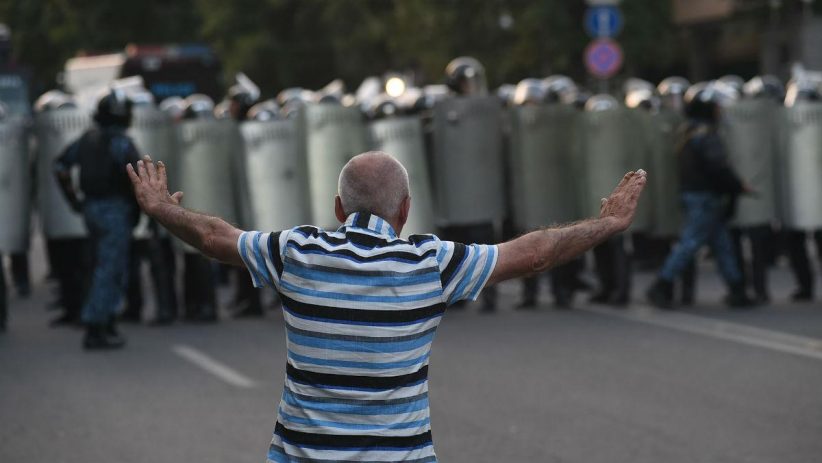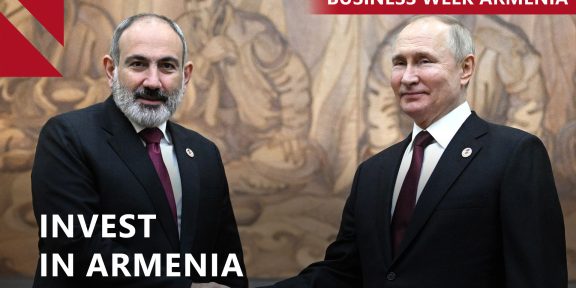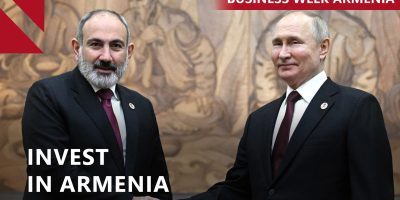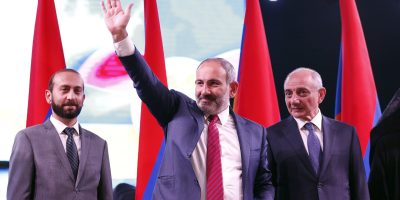By Patrick Azadian
“Every time I visit Armenia, I feel the whole place is about to go off a steep cliff. And we are doing nothing to stop it.” A California-based friend confided in me a few years ago.
“We have to do something. It cannot go on like this.” He said.
My friend actually does a lot for Armenia. But I have a feeling he was referring to fundamental changes, actions and visionary plans that can move the entire nation forward, not just the ‘feel-good,’ ‘admirable’ drops in the polluted ocean.
The same year, this was all before the revolution had taken place in Armenia, I was speaking to a journalist friend about the dire socio-economic conditions of Armenia and its people. I asked her to name the single major obstacle standing in the way of country’s progress, in other words, how do we change course and avoid going ‘off the cliff?’ I asked because while I consider myself an optimist when it comes to Armenia, like my California-based friend, I have never shared the view that things will magically get better. Many of us expect progress in our personal and professional lives only if there is a plan in place as well as tangible steps forward, both of which have been non-existent in Armenia.
I believe this to be the case if we are willing and able to look beyond the cosmetic glitter of capital’s central loop and pay attention to such key factors as the poverty rates, size of the middle class and migration flow. Construction of high-rise residential buildings that the locals cannot afford, for example, or existence of karaoke bars are neither signs of socio-economic progress nor a testament to cultural enlightenment. “It will all get better, it’s only been a few decades,” some like to say. But it never just gets better when the minimum wage barely satisfies the nutritional needs of a family of four (55,000 drams/month, $113.71).
After sipping on her thyme tea a few times, my journalist friend finally came up with more than one answer. “Of course, the current regime is a problem,” she said back then. “But, then again, there is also a lack of credible opposition to challenge the current leadership,” she continued. “And, I hate to say this, I know it’s unpopular, but as long as the people do not change themselves, nothing will change in Armenia. The people are also part of the problem,” she elaborated. “And when you realize there is no credible opposition and the people are also passive and apolitical, you hate yourself for thinking that the current regime is really the only choice we have,” she concluded.
“What do you think about Nikol Pashinyan?” I asked. “He says the right things.”
“Oh, he is just a journalist by profession, like me. Can I be a leader? No!” She answered her own question before I could say anything. “He is not a match for the current people in power. As corrupt as they may be, they are seasoned politicians now,” she said dismissively.
Her conclusions were somber but it summed up the mood of powerlessness and hopelessness common during the years leading up to the revolution. Finally, I asked her what she thought would become of Armenia.
“Either we’ll sink further into this nightmare or Armenia, as a state, will disappear from the face of the map,” she said.
She seemed almost embarrassed by her final prognosis. She avoided eye contact with me as she let out a nervous laugh. Her eyes wandered off to the top of the Cascade complex behind me and stayed there for a while.
I wasn’t sure if I agreed with all her assessments but at the same time, I couldn’t convincingly argue against them. One thing always felt odd about Armenia, however. The mismatch between the intellectual quality of the people I came across and the mediocrity and the medieval greed of the ruling class was striking. While I could have never predicted a popular uprising against the old regime, my dealings with people before the revolution always led me to believe there was a great disparity between the country’s human capital and the quality of the regime, a giant gap existed (and exists) between the abilities of the population and their socio-economic conditions. I remember chatting with a couple of Armenian university students and thinking Armenia will not be able to hold on to these bright minds. Armenia seemed like an oxymoron, a place where bright minds were taken hostage by the primitive few.
As I look back on my experiences and conversations with locals before the revolution, I am also hard pressed to identify anyone who was happy with the regime. What was unique, and a good measure of regime’s lack of popular base, was that the common and widespread feelings of revulsion toward the old guard crossed not only the generational barriers but also the socio-economic lines. But in a sense, my journalist friend was right. For over two decades, the regime had succeeded in planting the seeds of passivity among the people, her included.
“I live my life; I find happiness within myself. I hit the mountains or meditate when it gets really bad. They (the regime) can keep their power and degenerate lives for themselves,” a Yerevan-based friend shared her sentiments with me when I asked her about how she felt about what was going on in the country. This was about six months before the revolution.
“You have given up and have created an alternative reality for yourself,” I said. “That’s what the regime wants.”
“I’m trying to create happiness despite the ugliness around me. My dad was a soldier and I know how to soldier on. And, I am a ‘soldier.’ I am not a quitter.” She responded firmly.
There was a deep-rooted contempt in her voice. Being apolitical was born out of frustration, not from a lack of intellectual ability or consciousness. Perhaps, it was a temporary strategy of defiance and survival. The people were neither passive nor sleep, and the former journalist, was not ‘just a journalist’ either, as my journalist friend had claimed.
The revolution was in no small part about matching the potential of the people with a worthy leadership. The first step was taken, but there is a mysterious road ahead, full of forces who are resentful toward the revolution, individuals who rather see the promise of the revolution fail, the oxymoron to survive, and governmental bodies as well as officials that represent the archaic past. The sooner the relics of the past are disbanded, the quicker the Armenian people can take unrestricted steps toward building a country where they can fulfill their individual and collective potential.
As it turned out, my ‘passive’ friend took a break from hitting the mountains and meditation and joined the people’s uprising during the revolution.
“What happened?’” I asked her mischievously. “No more meditation?”
“What happened is that we made it happen,” she said.
















